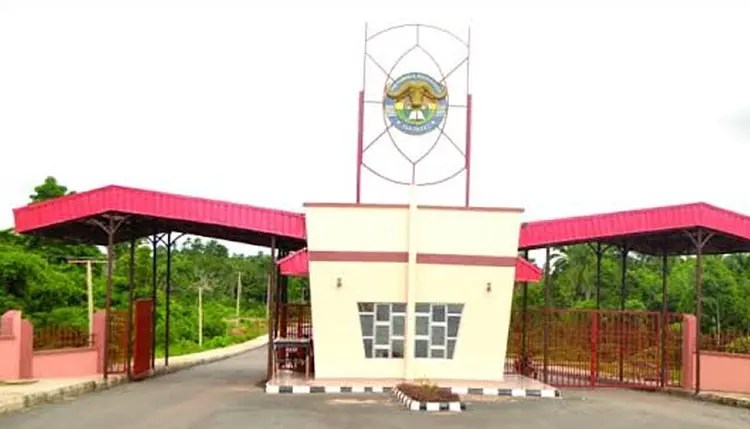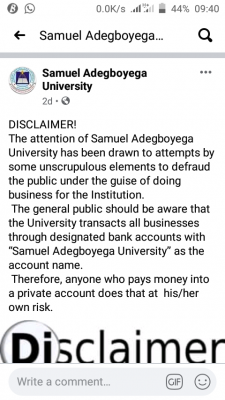
Bill to impose stiffer penalties for examination malpractice passes second reading at the House of Representatives, but not many think it can change anything, writes ARUKAINO UMUKORO
Last week Thursday, the bill to impose stiffer penalties against examination malpractice was read a second time at the House of Representatives.
The bill, which was sponsored by the House Majority Leader, Mrs. Mulikat Akande-Adeola, also provides for the amendment of the existing West African Examination Council Act, 2004, to make examination cheats pay fines of up to N200,000 upon conviction.
But some stakeholders in the public examinations sector are rather taking a different look at the bill, whose sponsors argue will curb “the high incidence of examination malpractices” in Nigeria.
The bill titled, the 2013 WAEC Amendment bill states that, “A person who before or during an examination conducted by the Council: is in possession of an examination paper; is found to have had foreknowledge of the contents of an examination paper; makes use of an examination paper or the contents of it in any manner whatsoever; without lawful authority, the proof of which shall be on that person, commits an offence and liable on summary conviction to a fine of not less than N200,000 or an imprisonment for a term of five years or to both such fine and imprisonment.”
Similar Posts:
The current fine is N2,000.
For visiting professor in the Faculty of Science Education, University of Education, Winneba, Ghana, Seun Omotayo, the proposed fine would not deter students from engaging in examination malpractice, which he described as an anti-social behaviour. In his view, the solution is in laying better educational foundations than penalties.
Omotayo said parents have tacitly encouraged such behaviour for a long time all in the name of ensuring their children go to school.
“Some parents permit their children to take shortcuts, one of which is exam malpractice. So, whatever amount of money the fine is, even if it is N1m, it would not deter it. Again, it may even encourage it, because some parents may just decide to pay the money in one swoop. A fine won’t suffice to fight examination malpractice,” he said.
A professor in the Department of Adult Education, University of Lagos, Supo Jegede, also echoed Omotayo’s sentiments. According to Jegede, punitive measures such as fines would not curb examination malpractice, rather it would encourage it.
He said, “All the rules, laws and punitive measures for drug addiction have not curtailed it. So, if the causes are not removed, it is very difficult for punitive measures to take it away. The only thing is that it would increase the level of sophistication by which offenders commit the act. Those who want to get away with malpractice would now strategise more and plan properly.
“Exam malpractice is a network, depending on which educational level one is dealing with. The ills of the society must first be addressed and reduced at least to some extent; that is when we can start talking about punitive measures.”
Although Jegede noted that the increasing number of students seeking admission into the country’s higher institutions was a major cause of examination malpractice, he also blamed the society for allowing such behaviour to fester for a long time.
In Jegede’s views, stiffer penalties won’t curb it. “Most importantly, when societal values are destroyed and there is nobody to look up to as mentor, examination malpractice would continue to increase,” he said.
He further said, “Many students want to pass at all cost. And when the learning situation is not good enough to bring about the best in them and there is a high level of competition for the few available spaces in these institutions, the tendency to get involved in examination malpractices will be higher.”
However, the bill has found support in an educationist, Dr. Ademola Azeez, who believes the proposed law would serve as a deterrent to others.
“It is not enough to pay the N200,000 fine behind the scene. In addition to that, the names and pictures of such offenders should be published in the dailies. That may also help,” he said,
Azeez however called on the authorities to also impose stiffer penalties on public officers who embezzle public funds. “Punishing examination offenders when there is corruption in the system is an irony. Cheating in examinations is bad in itself. But we should also ask for stiffer penalties for those who also steal or have stolen public funds,” he added.
Secondary School students, however, expressed different views.
A Senior Secondary School three student, David Adesina, echoed Azeez’s sentiments. He said, “If those in power embezzle public funds and nothing is being done about it, why should a child caught cheating face five years imprisonment or pay a fine?”
Another SSS Two student, Gbemisola Babalola, also felt the same way. She said, “I think the years of imprisonment are too long. The payment of the fine would be okay if only it could be reduced to a reasonable amount.”
“It is a wise decision because of the rate of malpractice in schools these days. Some students no longer read before going to sit for exams because they think it is better to cheat. But, I think the fee is too high,” said SSS Three student, Prosper Eneremadu.
Similarly, a SSS two student, Gift Ugbelenta, welcomed the proposed strict measures for examination cheats, which she said was ‘acceptable’. “It would make those involved in examination malpractice fearful, but I think the fine should be reduced to a smaller amount,” she said.
For Favour Adesina, a Communications and Language Arts graduate of the University of Ibadan, the proposed fine for examination malpractice could also be abused by some. “Rather than become a corrective measure, some people could turn it into a money making venture. Also, students whose parents are rich would prefer to pay the fine., while the masses are the ones that would suffer for it,” he said.
Beyond punitive measures for offenders, Omotayo said examination malpractices must be dealt with from the home before it festers in the school environment.
He said, “We have to fight examination malpractice. Our children must be taught that they need to work hard to achieve academic success, that was our philosophy in our younger days. But today, all children want to do is play,” he said.
Thus, he also called on parents to educate their children on the values of honesty and hard work.
He said, “Children are sometimes encouraged by their parents to cheat during examinations. For example, some parents willingly pay to have their children write their examinations at special centres.
“We should not just treat the consequence, let us look at the cause – the major problem is that we have lost our societal values,” he noted, adding that there should be a national forum for parents, teachers and students to examine the root causes and ways to curb it.
“This (examination malpractice) is a common behaviour nationwide. So, I think what should be done is call for a parents-teachers meeting all over Nigeria to discuss the issues, including the attitude of children to education.
“Parents must ensure that their children see hard work as the only way in achievement, and not by cutting corners or sharp practices during examinations,” he added.
The House Majority Leader, Akande-Adeola, who led the debate on the bill, however said Nigeria was the only country among five member-countries of WAEC that had not ratified the convention on the new WAEC law. The other countries are Ghana, Liberia, Sierra Leone and The Gambia.
WAEC was not available with a response when our correspondent called. The Public Relations Officer of WAEC, Mr. Yusuf Ari, said he would get back to our correspondent on the council’s position on the bill, but he was yet to do so as at press time. (Punch)



